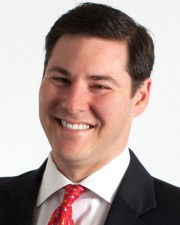


While many franchisor/franchisee relationships start with good intentions, a wise franchisee should hope for the best, but be prepared for the worst. Given that many hotel franchise agreements may continue for 20 years or more, this means preparing an “exit plan” in the event that the franchisee needs to find a way out.
Ideally, such an exit plan would take the form of one or more mutually agreed upon termination rights where, during limited agreed upon periods of time, one or both of the parties can terminate the franchise agreement, with or without cause, either for free or with the payment of a pre-negotiated termination fee.
From the franchisee’s perspective, any such termination right should be triggered only by the franchisee. If the franchisee is not performing under the franchise agreement, the franchisor has many contractual ways to terminate the contract, and does not need one more. The franchisee, on the other hand, has fewer options if the relationship is not working out. In addition, a franchisee’s lender may view a franchisor triggered termination right as the equivalent of a reduction in the term of the franchise agreement. This can cause headaches with loan underwriting.
But what if the franchisor will not agree to an express contractual termination right? From the franchisor’s perspective, much of the franchisor’s market value is supported by the “unit count” in its franchise system. Thus, many franchisors will resist giving franchisees a unilateral right to terminate the franchise agreement. If the hotel brand is new or trying to grow, the cost of a franchisee termination right may be worth the benefit of attracting more franchisees into the system. This is, in a sense, a “promotional” offer, where a franchisee is given the opportunity to try out the brand with limited risk for a period of time. However, a franchisor may not have any incentive to offer the franchisee a unilateral termination right if the brand is well established and in demand.
Without an express contractual termination right, a franchisee’s path out of a franchise agreement becomes narrower. A franchisor default may give the franchisee the ability to terminate the agreement, but franchisor defaults are rare, and in some cases (i.e., if the franchise agreement has an independent covenants clause), still won’t provide a termination right for the franchisee. Absent an express termination right or a franchisor default triggered termination right, a franchisee that wishes to exit the franchise agreement is left with little choice but to intentionally default under the franchise agreement and thereby force the franchisor to initiate a termination.
Such a situation resembles a high stakes game of Russian roulette. Most hotel franchise agreements have liquidated damages (often called “LDs”) provisions that set forth the monetary damages the franchisor may seek in the event of a franchisee default. In most states, LDs are enforceable so long as they represent a reasonable approximation of the franchisor’s actual damages. On the other hand, LDs should not be a windfall for the franchisor or an unenforceable penalty against the franchisee, and a franchisee may challenge the legality or appropriateness of the LDs in court. Any such legal challenge will be costly and time consuming, and the additional possibility of having LDs reduced in court may facilitate a settlement discussion.
Another potential factor for settlement depends on how quickly and easily the franchisor believes it can replace the defaulting franchisee with a new hotel franchisee at a different location in the same market. Litigation is time consuming, expensive and risky for everyone involved. While a default is being litigated, most franchisors will be prevented from granting the disputed franchise to another franchisee – and thereby frozen out of the market. So, if there is a prospective franchisee in the market who could replace the defaulting franchisee (albeit at another location), many hotel brands might make the business decision to quickly settle the dispute for less than the full LDs and get a release from the defaulting franchisee so that the franchisor can grant the franchise to someone who actually wants it - and presumably would pay franchise fees for years to come.
However, not all franchisors will easily settle. Some hotel franchisors have a reputation for zealously pursuing LDs, so as to discourage other franchisees from trying to exit the system early. Other franchisors may approach each situation on a case-by-case basis and decide that the benefits of seeking LDs in a particular situation outweigh the costs. In such situations, the franchisee (and/or a guarantor of the franchisee) may end up having little choice but to pay the full amount of the LDs to exit the relationship and/or rack up large legal bills in the process.
Finally, if a hotel franchisee is going to explore the above options, such hotel franchisee should understand that forcing a default of a hotel franchise agreement and then paying the LDs is not the same as a contractual termination right for the franchisee. Not only does the franchisor hold the card of deciding when or if to terminate the franchise agreement, but more significantly, many hotel franchise agreements allow the franchisor to seek remedies in excess of the LDs after a franchisee defaults. Such provisions may even allow franchisors to seek equitable (non-monetary) remedies, such as injunctions (i.e., court orders) preventing the franchisee from using the franchisor’s intellectual property.
While LDs are generally viewed as the full measure of contractual monetary damages under the franchise agreement, many franchisors reserve the right to seek additional monetary damages for so-called “bad boy” acts and/or business torts, such as fraud or intentional misrepresentation. Such remedies are difficult to prove in court, but that is not the point. Rather, even if a franchisee is prepared to pay LDs, nothing legally requires the franchisor to accept the payment and allow the franchisee a clean exit. The only way to guaranty such a result is through a contractual termination right.
Joshua Bowman is a lawyer from the Boston law firm of Sherin and Lodgen LLP. Bowman is the chair of the firm’s hospitality practice group and is a well-known hospitality attorney.
Joseph Wang is a partner at Sherin and Lodgen LLP in the Real Estate Department and is a member of the hospitality practice group.




